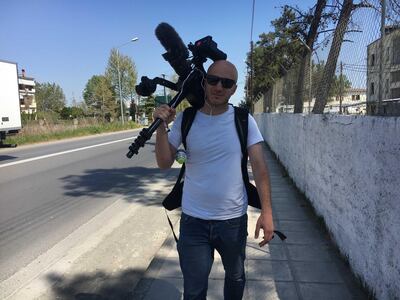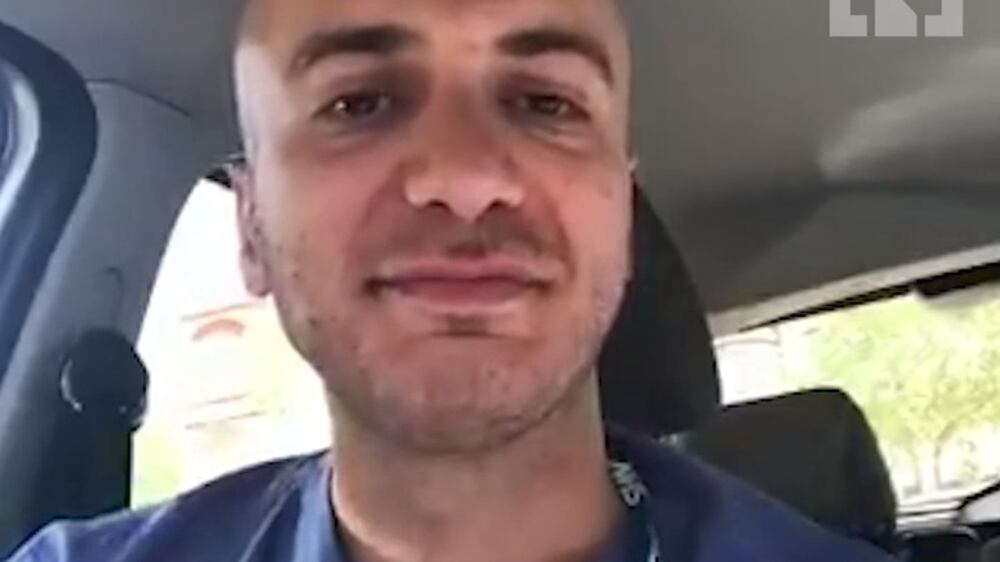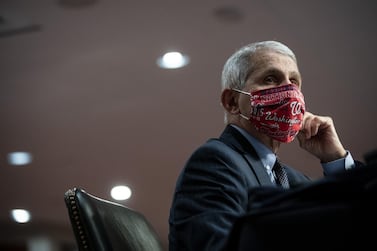The UK government has reversed a highly controversial decision to omit health support workers from a bereavement scheme that allows their families to stay in the country.
Initially, Prime Minister Boris Johnson's administration did not extend the policy to National Health Service hospital porters, cleaners and social care staff.
The policy allows family members to have indefinite leave to stay in Britain if a relative dies fighting Covid-19.
Many of the workers come from migrant backgrounds.
The about-face came after a Syrian refugee working in a London hospital said he had been “betrayed” by Mr Johnson.
Hassan Akkad, a filmmaker who used to teach English in Dubai, released a tearful message online begging Mr Johnson to reconsider the decision.
Not long after, Interior Minister Priti Patel announced that the family members would be granted indefinite leave.
“Every death in this crisis is a tragedy and sadly some NHS support staff and social care workers have made the ultimate sacrifice in the pursuit of saving the lives of others," Ms Patel said.
“When I announced the introduction of the bereavement scheme in April, I said we would continue to work across government to look at ways to offer further support.
"Today we are extending the scheme to NHS support staff and social care workers."
Mr Akkad started work disinfecting coronavirus wards at Whipps Cross Hospital, London, when Mr Johnson was being treated at another hospital after catching Covid-19.

“I’ve been really enjoying the clapping that you and your fellow ministers in the government do every week,” an emotional Mr Akkad said on the video.
“Today, however, I felt betrayed, stabbed in the back.
"I felt shocked to find out that you’ve decided, your government decided, to exclude myself and my colleagues who work as cleaners and porters and social care workers, who are all on minimum wage.
“So if I die fighting coronavirus my partner isn’t allowed an indefinite leave to remain. This is your way of saying thank you to us?”
Unions called the government's original decision an outrage that would have hit the lowest paid National Health Service workers.
More than 175 frontline health and care workers have died after contracting the coronavirus.
“I’m ending this message hoping you will reconsider because I did see a humble Boris after you were discharged from hospital," Mr Akkad said. "I saw a different Boris.
“Us migrants are on the frontline doing these very demanding jobs to help this nation overcome this pandemic, and the least you can do if we die is give families indefinite leave to remain.
"Please reconsider and I hope to hear back from you.”
After the change of heart, Mr Akkad was front page news.
Thursday’s METRO: “Shamed By This Hospital Cleaner” #BBCPapers #TomorrowsPapersToday pic.twitter.com/MlWgoygvAo
— Allie Hodgkins-Brown (@AllieHBNews) May 20, 2020
He taught English in Syria and fled after being imprisoned by the regime of President Bashar Al Assad.
More than 35,500 who caught Covid-19 have died in the UK.
There has been criticism that frontline health workers have not received enough personal protective equipment.









